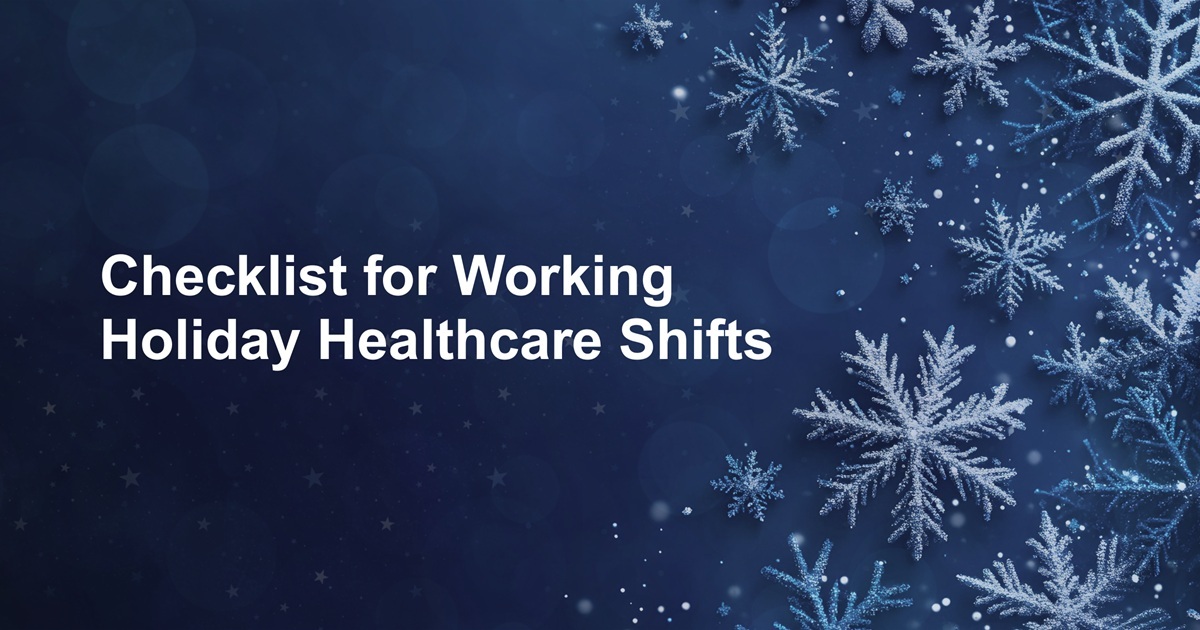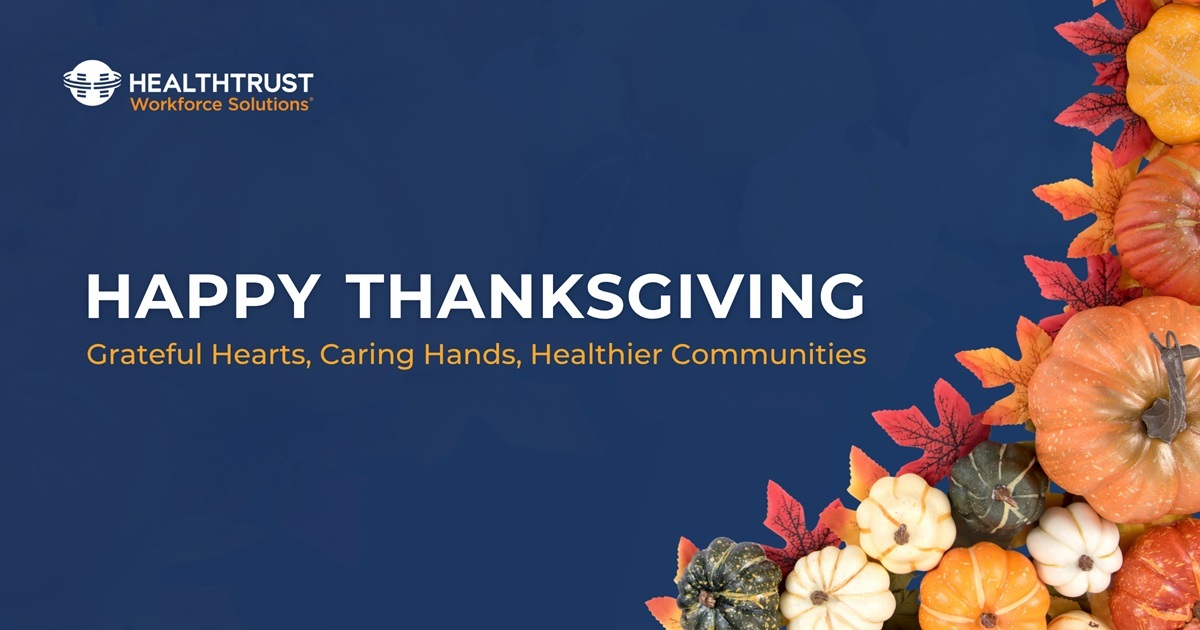Looking for a great last-minute gift idea? If you know a nurse or clinician who's interested in taking their career to new places, give the gift of a great opportunity with our nursing and allied referral program and you could earn up to $1,000.*
Nursing & Allied Referral Program: Give the Gift of a Great Career!
Topics: Nursing, Holiday, Allied Health, Referral Program
2025 HealthTrust Holiday Party: Celebrating Another Amazing Year!
Another year is coming to a close, and we've marked the occasion in our usual way — with a company-wide town hall and holiday celebration at our Florida HQ! Read on for an insider's recap of the 2025 HealthTrust Town Hall and Holiday Party, plus an exclusive video of highlights from this year's events.
Topics: Holiday, Celebrations
Holiday Checklist: Scheduling Shifts with the Go HWS Mobile App
With the holidays upon us again, it’s the perfect time to double-check and lock down your seasonal schedule. And with the HealthTrust Go HWS Mobile App, that's easier than ever to do. Here’s what you need to know.
Topics: Holiday, Go HWS Mobile App, Scheduling
Get Set for the Season with Our Holiday Checklist for Nurses & Clinicians
Nurses and clinicians, are you ready for the holidays? From getting your scheduling sorted to a few ways to extend cheer to others, get set for another busy season with this holiday season checklist for nurses and clinicians.
Topics: Holiday
10 Ways to Thank Nurses & Healthcare Workers This Thanksgiving Season
Happy Thanksgiving! Here at HealthTrust, we want to be among the first to show our love and gratitude to the many nurses and clinicians working hard during the holidays, and all throughout the year. And we invite you to join us with these 10 ways to thank nurses, clinicians, and, if you're a healthcare worker, yourself, too!
Topics: Nurse Appreciation, Holiday, Thanksgiving
National Healthcare Recruiter Day 2025: What Makes a Great Healthcare Recruiter?
What makes a great healthcare recruiter? From amazing communications skills to an above-and-beyond attitude, celebrate National Recruiter Recognition Day 2025 with a look at 5 things that makes an exceptional healthcare recruiter, in the words of the nurses and clinicians they work with every day.
National Nurses Week Discounts & Giveaways: 7 Best Deals for 2025
One of the most exciting things about Nurses Week is all the great deals and freebies you can get just for being a nurse! And as part of our Nurses... the Heartbeat of Healthcare campaign, we're here to help you find the best goodies with our guide to National Nurses Week discounts and giveaways for 2025.
Topics: Nurse Appreciation, Holiday, National Nurses Week
Celebrating Nurses Week 2025: The Heartbeat of Healthcare
Happy Nurses Week 2025! Here at HealthTrust, we're spreading the word with Nurses... The Heartbeat of Healthcare, our campaign to honor and celebrate the skill, compassion, and resilience of nurses everywhere. Here's what to expect, why it matters, and some ideas on how to help celebrate Nurses Week 2025!
Topics: Nurse Appreciation, Holiday, National Nurses Week
Celebrate National Doctors' Day 2025 with HealthTrust
Happy Doctors’ Day 2025 from HealthTrust! Join us in marking the occasion with a look at the history of this important day, a few ideas on how to support it, and some fast facts about physicians and the important work they do each day.
Topics: Locum Tenens, Events, Holiday, Doctors' Day
Happy National Physicians Week 2025 from HealthTrust!
Physicians, this week’s for you! And we’re celebrating National Physicians Week 2025 with you in mind, offering up some well-deserved thanks and appreciation for the hard work you do each and every day. And to everyone else, here’s why Physicians Week matters, and what you can do to help support the cause!
Topics: Locum Tenens, Events, Holiday, Physicians Week












